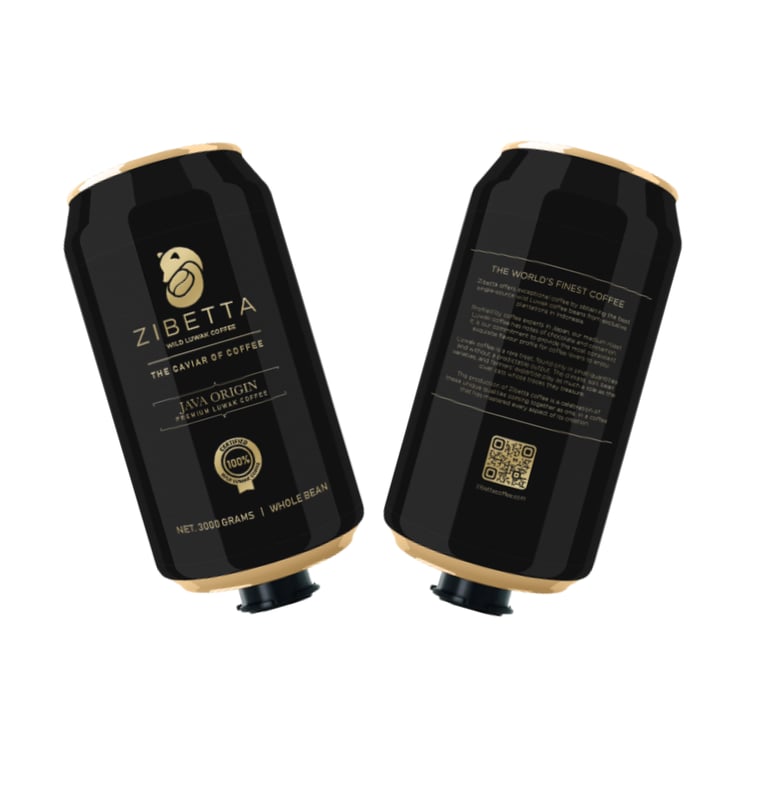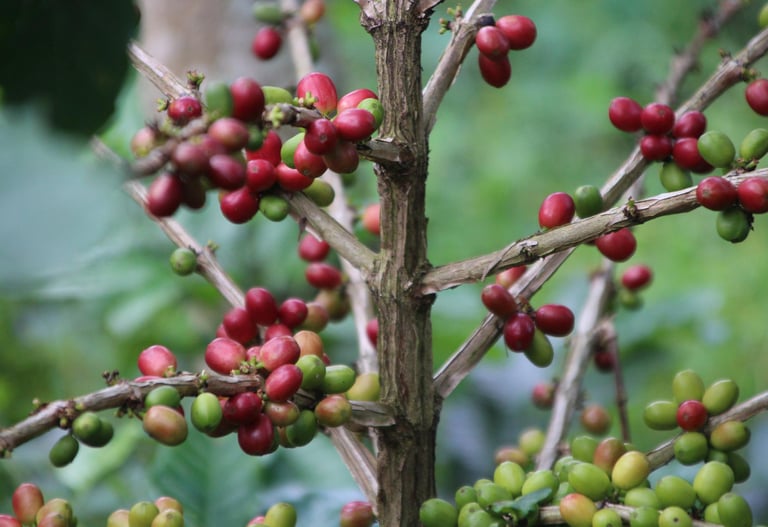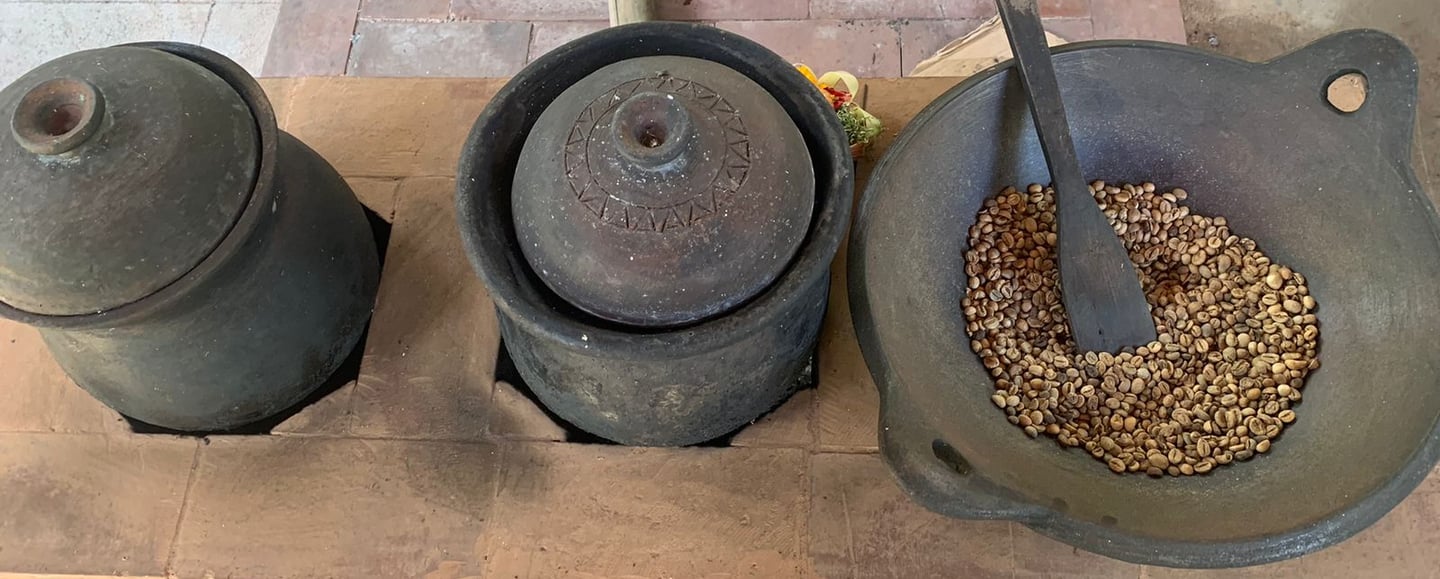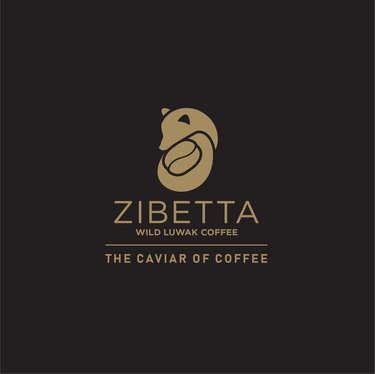OUR PROCESS
THE WORLD’S MOST PRECIOUS COFFEE
our Luwak Coffee is the most luxurious and rare specialty coffee on earth. It takes over a hundred experts working together in decorous harmony to produce the epitome of flavor, aroma and body found only in this 100% Authentic Wild Luwak Coffee.




Civet Coffee – Its Origin, History, and Distribution
Have you ever stopped and thought about how Civet Coffee is produced? No? Well after reading this I am sure you will agree that It is a very interesting process. Indeed, Luwak Coffee is made in an unorthodox way, and people are usually surprised to hear the overall production process if they are not familiar with this type of coffee. What makes this coffee so is that Asian Palm Civets are involved in the coffee bean production process. This type of coffee is also known as “Kopi Luwak” and it has become much more popular in recent years. It has even made a couple of appearances in famous movies and TV-Shows. We have summarized these media appearances, and you can see these scenes from the famous movie “The Bucket List” here and a couple of TV Shows here. To see the most important facts about Civet Coffee in a summarized and easily consumable way, we created the infographic below.We hope it will be useful for you and it helps you to learn more about Luwak Coffee.


The Coffee Tree – Coffea Spp
There are many different coffee varieties, with the two main categories being Arabica and Robusta. The Coffee tree grows in tropical areas and plants typically carry a red fruit, also known as a cherry. Though there are many different Coffee varietals, and these can have different coloured cherries. Thus cherries may also be yellow, like found with the Varietal Yellow Cattura. Cherries usually contain two coffee beans, but in some instances, they may contain only one bean, this kind of bean is called “Peaberry Coffee”. Coffee Plants grow best in sandy soil. Shade grown coffee performs the best. This is because of the slower development of the coffee cherries, which allows the production of more sugars, and an overall sweeter coffee. Of the two main varieties, Arabica is of higher quality and grows at a higher altitude. However, Arabica Plants produce fewer coffee cherries and are more difficult to grow as they are more limited in the areas they can grow and are susceptible to pests and diseases.
Coffee Beans
Coffee Beans are contrary to popular belief not beans, but are in fact seeds.The “beans’ are surrounded by the sweet fruit flesh of coffee cherries. There may be one, two or sometimes even three seeds in a coffee cherry.
What is Civet Coffee?
A Civet is a small mammal belonging to the Paradoxurus genus that is found in forests in numerous parts of the World. The most well-known civets are the Asian Palm Civets, often referred to as the Civet Cat. There are many other members of this genus, such as African Civets, which as their name implies are mostly found in Central Africa. Although referred to as a cat, this small mammal is actually a viverrid. The natural habitat of this species are the forests of Southeast Asia and India. These small animals roam around forests in Southeast Asia, especially in the Indonesia. As they are omnivores, they eat food derived from both plants and animals, largely depending upon availability.
History of Civet Coffee
When the Dutch first arrived in Indonesia, they created coffee plantations so as to mass produce coffee for export. This meant that the locals could no longer grow coffee on their own lands nor did they have enough money to purchase coffee from the market.However, they soon discovered that small, cat-like animals liked to eat ripe coffee cherries and partially digest the beans. They started to collect the droppings and then roasted the civet coffee beans inside. This allowed them to be able to drink a delicious black coffee beverage without having to pay the high prices at the markets. InAfter the dutch found out about the coffee the locals were consuming, they tried it themselves, and enjoyed the surprisingly delicious brew without any bitterness. Later, this type of coffee became popular with those who appreciated high-quality coffee brews and liked to try something new. Recently, movies and TV-Shows have brought this into the minds of many people, and made it well-known around the world.


We innovate and re-invent.We are culture driven and people-centred.
Our Value


At Zibetta Coffee we think business and conservation should go hand in hand. We believe in providing sustainable income to local farmers and workers, which is why we follow ethical, fair trade practices and pay the farmers well beyond what coffee brokers would pay for their product.
With that commitment in mind, 10% of profits are donated to the Yayasan Sahabat Lingkungan Hidup. The EcoCamp is the nation’s leading not-for-profit, private land conservation organization, working to protect our most important natural areas and the species they sustain. To learn more, visit: www.ecolearningcamp.org
We believe in nurturing the environment and respecting local wildlife. Our coffee beans are 100% organic and we never use chemicals or fertilizers. We do not keep civets in cages – the animals that process our coffee live in the wild and are free to roam and eat the coffee cherries THEY choose.
We also believe in using technology to promote effciency at community levels, to improve living standards and create sustainable business. We design and build custom machinery for our own use and benefit, and share our developments with our partner producer communities.


Ready to buy?

